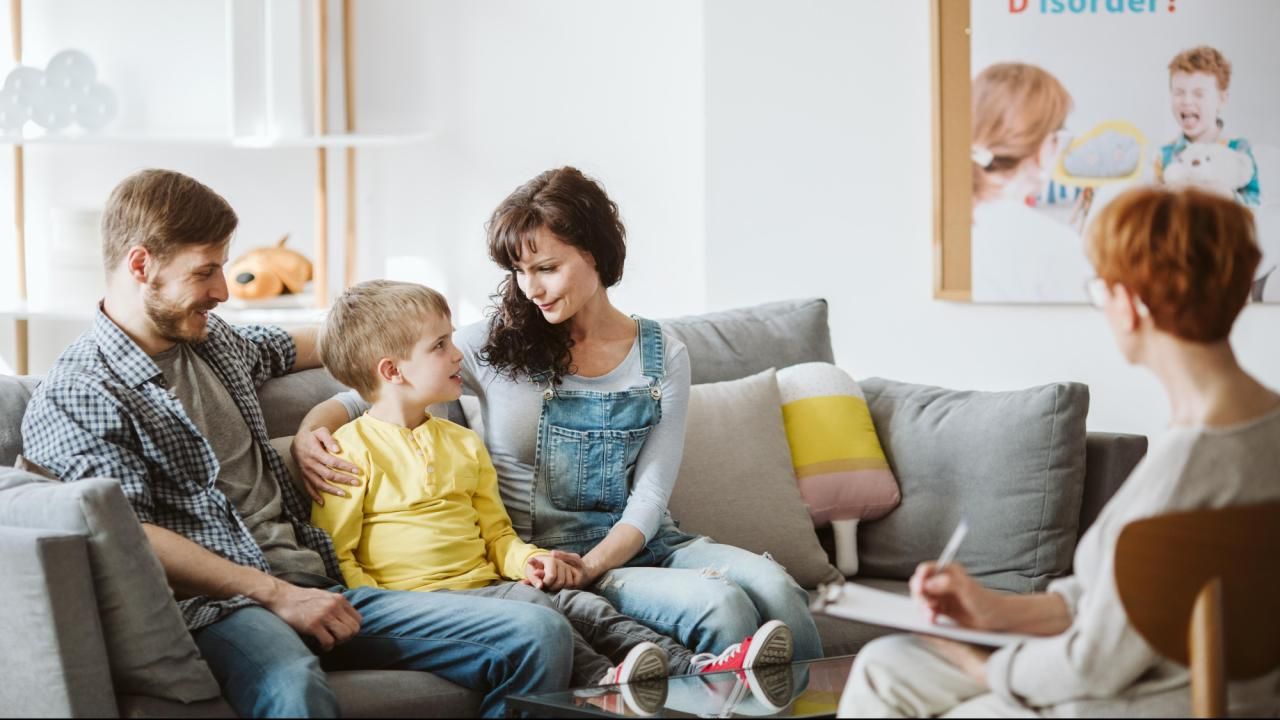Why Is the Process of Adopting From Foster Care Unique?
When adopting from foster care, you’ll encounter a blend of legal complexities, trauma impacts, and resilience-building experiences. The process involves maneuvering intricate laws, providing essential support for children facing trauma, and ensuring a smooth changeover. Cultivating cultural sensitivity, completing necessary training, and embracing post-adoption challenges are all part of this unique journey. Each step reveals nuances that shape a profound and transformative adoption experience. The tapestry of challenges and rewards is unlike any other, offering a chance to create lasting bonds and positively impact a child’s life.
Key Takeaways
- Involves legal complexities and advocacy for child rights.
- Addresses trauma impact and requires specialized support.
- Focuses on resilience building and emotional healing.
- Requires patience, stability, and long-term commitment.
- Emphasizes cultural sensitivity and post-adoption challenges.
Legal Complexities in Foster Care Adoption

Why do legal complexities often arise when families consider adopting from foster care?
The adoption process from foster care involves working through a myriad of legal complexities that can be overwhelming. Advocacy plays an important role in safeguarding the rights of both the child and the prospective adoptive family are protected throughout the process.
Documentation is a key aspect of the adoption process, and making sure that all necessary paperwork is in order is essential. From background checks to court hearings, the legal aspects of foster care adoption require meticulous attention to detail. Understanding the laws and regulations surrounding adoption is essential to prevent any delays or complications that may arise.
Advocacy groups and legal professionals can provide invaluable support and guidance to families starting on the journey of adopting from foster care.
Impact of Trauma on Adopted Children
As you consider adopting from foster care, it’s important to understand the potential impact of trauma on adopted children.
Trauma can manifest in various ways, affecting a child’s behavior, emotions, and development.
Through proper support and understanding, children can heal and demonstrate remarkable resilience in the face of adversity.
Trauma’s Adoption Effects
Understanding the profound impact of trauma on adopted children is essential for creating a supportive environment that promotes healing and growth.
Adopted children often face attachment challenges due to past experiences, making it vital to provide therapy support to help them build secure relationships and develop trust.
Emotional triggers can surface unexpectedly, causing distress and anxiety. In such moments, teaching coping strategies like deep breathing exercises, mindfulness techniques, and creating safe spaces can assist in managing overwhelming emotions.
It’s essential for caregivers to be patient, empathetic, and understanding during these challenging times.
Healing Through Support

Healing through support is crucial for adopted children who’ve experienced trauma, as it plays a pivotal role in their journey towards emotional well-being and stability. After enduring challenging experiences, these children often require specialized care to address their emotional wounds effectively. Therapeutic approaches such as counseling support and group therapy can provide a safe space for adopted children to express their feelings, process their trauma, and learn coping mechanisms.
Emotional healing is a complex process that requires patience, understanding, and professional guidance. Adopted children may exhibit behaviors stemming from their past traumas, and through counseling support, they can gradually work through their emotions and develop healthier ways of relating to others.
Resilience in Children
Understanding the impact of trauma on adopted children requires a deep understanding of their resilience in the face of adversity. Adopted children who’ve experienced trauma may exhibit behaviors that stem from their past experiences. Building resilience in these children is vital for their emotional well-being and overall development. Resilience is the ability to bounce back from difficult situations and thrive despite challenges.
To support resilience building in adopted children, providing a stable and nurturing environment is essential. Offering consistent emotional support, validation of their feelings, and encouraging healthy coping mechanisms can help foster resilience. It’s important to create a safe space where children feel heard, understood, and valued.
Adopted children who’ve experienced trauma may struggle with trust, attachment issues, and emotional regulation. By providing unconditional love, patience, and guidance, caregivers can play a significant role in helping these children develop resilience. Celebrating small victories, encouraging self-expression, and promoting a positive outlook can contribute to the resilience-building process.
Support Systems for Foster Care Families

As you navigate the journey of fostering and adopting children, having access to foster family resources can provide essential support and guidance.
Training programs can equip you with the necessary skills and knowledge to navigate the unique challenges that may arise.
Building strong community connections can also offer a network of support and understanding as you commence on this meaningful path.
Foster Family Resources
When maneuvering through the complexities of foster care, having access to a robust network of support systems and resources can greatly enhance the well-being of foster families. Support groups play an essential role in providing foster families with a sense of community and understanding. These groups offer a platform for sharing experiences, seeking advice, and fostering connections with others who are going through similar challenges.
Additionally, counseling services are crucial in helping foster families navigate the emotional ups and downs that often accompany foster care. Professional counselors can provide individual or family therapy to address any issues or concerns that may arise during the fostering process, offering valuable support and guidance.
Training and Guidance
Utilizing extensive training programs and guidance services can equip foster care families with the necessary skills and knowledge to navigate the challenges of fostering children effectively. These resources are designed to enhance parenting skills and provide emotional support to caregivers as they start on their fostering journey.
Parenting skills are an important aspect of fostering, as it involves understanding the unique needs of children coming from diverse backgrounds and situations. Training programs often cover topics such as trauma-informed care, behavioral management techniques, and building healthy relationships with foster children. By honing these parenting skills, foster families can create a stable and nurturing environment for the children in their care.
Emotional support is also essential for foster care families, as the fostering process can be emotionally demanding. Guidance services offer a safe space for caregivers to express their feelings, seek advice, and connect with other foster families facing similar challenges.
Building a support network can help foster families navigate difficulties, celebrate successes, and ultimately provide a loving and stable home for children in need.
Community Connections
Enhancing the support systems available to foster care families can greatly impact their ability to provide a nurturing environment for children in need. Community involvement plays an essential role in creating a network of support for families managing the foster care system. Building connections within the community can provide foster families with the resources and assistance they need to guarantee the well-being of the children under their care.
Support networks can offer practical help, emotional support, and valuable guidance to foster families facing the unique challenges of caring for children from foster care. By engaging with community organizations, support groups, and other foster parents, families can access a wealth of knowledge and experience to manage the complexities of the foster care system effectively.
Providing resources such as educational workshops, access to mental health services, and financial assistance can alleviate some of the burdens foster families may encounter. Strengthening community connections ultimately strengthens the foundation on which foster care families can provide stability, love, and care for the children in their homes.
Transitioning From Foster Care to Adoption

Managing the shift from foster care to adoption can be a complex and emotional process for both the child and the prospective adoptive family. Emotional readiness and stability are important for all involved parties. The child may have experienced various traumas and changes, making the move to a permanent home challenging.
As a prospective adoptive family, it’s essential to be emotionally prepared to support the child through this delicate period. Demonstrating stability and providing a nurturing environment are key aspects of facilitating a smooth change.
Adopting from foster care requires a long-term commitment and thorough preparation. Understanding the unique needs of children who’ve been in foster care is crucial. It’s essential to approach the shift with patience, empathy, and a willingness to adapt to the child’s specific requirements.
Building trust and establishing a sense of security are fundamental in helping the child adjust to their new family dynamic. By being emotionally ready, stable, and committed, you can create a supportive environment for the child during this significant life alteration.
Training and Education Requirements
As you consider adopting from foster care, it’s important to familiarize yourself with the necessary training and education requirements involved in the process. Developing strong parenting skills is vital in providing a stable and nurturing environment for a child coming from foster care. Training programs often cover topics such as trauma-informed care, attachment issues, and behavior management techniques to equip prospective adoptive parents with the tools needed to support their child’s unique needs effectively.
One essential component of the adoption process is the home study. This evaluation assesses the suitability of your home environment for a child, ensuring that it meets safety standards and provides a positive setting for their growth and development. The home study also involves interviews, background checks, and sometimes educational sessions to prepare you for the responsibilities of adoption.
Importance of Cultural Sensitivity

Understanding the significance of cultural sensitivity when adopting from foster care is essential for creating a welcoming and inclusive environment for the child you’re considering bringing into your family. Cultural competence plays a pivotal role in providing a nurturing and supportive atmosphere where the child can feel a sense of belonging and acceptance.
By engaging in diversity training, prospective adoptive parents can gain valuable insights into the unique cultural backgrounds and experiences of children in foster care, helping them better understand and address the child’s needs.
Embracing cultural sensitivity involves not only respecting the child’s heritage and traditions but also actively incorporating them into your family dynamics. It’s vital to create an environment where the child feels valued for who they’re and where their cultural identity is celebrated.
Through ongoing education and a commitment to fostering cultural awareness, you can provide a safe and affirming space for the child to thrive and develop a strong sense of self-worth. By prioritizing cultural sensitivity, you’re laying a solid foundation for a successful and harmonious adoption journey.
Post-Adoption Challenges and Resources
Managing post-adoption challenges and accessing available resources can greatly support your journey as a new adoptive family. Post-adoption therapy plays an essential role in helping both the child and the family navigate the complexities that may arise after the adoption process. This specialized form of therapy focuses on addressing attachment issues, trauma, and adjustment difficulties that can be common in adopted children. By seeking post-adoption therapy, you can equip yourselves with the tools and strategies needed to build a strong and healthy family unit.
In addition to therapy, support networks can provide invaluable assistance during the post-adoption phase. Connecting with other adoptive families or joining support groups can offer a sense of community, understanding, and shared experiences. These networks can serve as a source of guidance, encouragement, and practical advice as you navigate the unique challenges that come with adoption.
Frequently Asked Questions
Can Biological Parents Change Their Minds After a Foster Care Adoption?
Yes, biological parents can change their minds after a foster care adoption. This situation can have significant legal implications, affecting biological rights, emotional impact, and family dynamics. It is a complex and sensitive issue to navigate.
Are There Age Restrictions for Individuals Adopting From Foster Care?
To adopt from foster care, age restrictions may apply. Adoption eligibility criteria often include being over 21 years old. The legal process guarantees potential parents meet requirements for providing a stable and loving home.
How Are Sibling Groups Typically Handled in Foster Care Adoptions?
When considering sibling placement in foster care adoptions, agencies prioritize keeping siblings together. The adoption process typically involves thorough assessments to guarantee a suitable environment for the entire sibling group. Support and resources are available to assist with this change.
What Happens if the Foster Child Does Not Want to Be Adopted?
If a foster child does not want to be adopted, it can be emotionally challenging for them. From the child’s perspective, their feelings must be respected. Legal implications may involve exploring their wishes. Support services are essential for everyone involved.
Is It Possible to Adopt a Child From Another State’s Foster Care System?
Yes, it is possible to adopt a child from another state’s foster care system through interstate adoptions. However, it involves complex legal considerations due to varying state laws. Consult with professionals to navigate the process effectively.
Conclusion
To sum up, the process of adopting from foster care is unique due to legal complexities, the impact of trauma on children, and the need for strong support systems.
Moving from foster care to adoption requires specialized training and education, as well as cultural sensitivity.
Post-adoption challenges may arise, but there are resources available to help families navigate these obstacles.
Remember, you aren’t alone in this journey, and there’s support and guidance every step of the way.

Hey there! 👋 I’m a proud mom and passionate writer, sharing my parenting journey. 📝 Join me as I navigate the ups and downs of motherhood, offering tips, advice, and a sprinkle of humor along the way. 🌟







